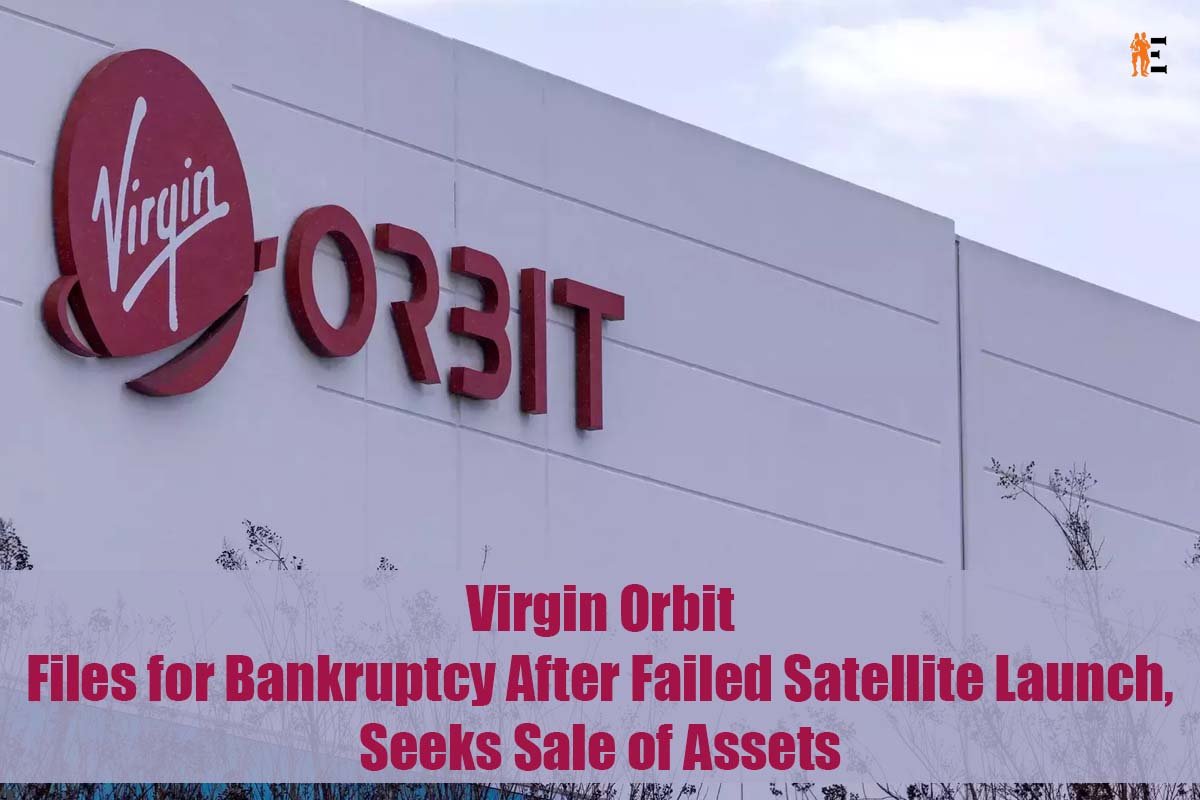Virgin Orbit Holdings Inc, the satellite launching company founded by billionaire Richard Branson, has filed for Chapter 11 bankruptcy protection after facing challenges in securing long-term funding following a failed launch in January. The filing comes less than two years after Virgin Orbit went public with a valuation of approximately $3 billion. However, the January mishap left the company struggling for new funding, resulting in operations being halted.
Here’s how things unfolded
Virgin Orbit, which was spun off from space tourism firm Virgin Galactic in 2017, launches satellites into orbit using rockets launched from a modified Boeing 747 plane. The company is based in Long Beach, California, and recently filed for asset sale in a Delaware court, shortly after announcing the laying off of approximately 85% of its workforce, which consisted of 750 employees.
As of September 30, Virgin Orbit listed its assets at around $243 million and total debt at $153.5 million. The company went public in December 2021 through a blank-check merger, but only raised $255 million, which was lower than expected. On Monday, the company’s valuation was $65 million, but on Tuesday, its shares plummeted by 23% to a mere 15 cents per share.
Richard Branson’s Virgin Orbit files for bankruptcy
Sixth Mission’s Role
The company’s setback was primarily caused by its sixth mission in January, which involved the LauncherOne rocket, the first rocket launch out of Britain. Unfortunately, the mission failed to reach orbit, resulting in the payload of commercial and defense-related research satellites plunging into the ocean. This mishap forced Virgin Orbit to halt operations and furlough nearly all of its employees in March in order to conserve cash.
Employees receive Apology
Tony Gingiss, the former chief operating officer of Virgin Orbit, apologized to employees via email, acknowledging that the company’s leadership should have taken action sooner to avoid surprising the workforce. He expressed regret for not being able to convince the leadership and board to take a different path to give the company more time to address its challenges.
Stakes Raised by the Competition
Virgin Orbit’s business model focused on launching small rockets and offering short-notice launches from anywhere, including for tactical military purposes, which was highlighted by the conflict in Ukraine. However, in the past two years, there has been an increased demand for larger launch rockets and more cost-effective shared payload launches into space, primarily through SpaceX’s Falcon 9 rocket, which has raised the competitive stakes.
The venture investments in space startups dropped by 50% year-over-year in 2022 to $21.9 billion, according to VC firm Space Capital, due to increased global interest rates, making it difficult for Virgin Orbit to obtain new capital. The company also faced heavy pricing pressure from well-capitalized competitors in the commercial launch market, as acknowledged by Virgin Orbit’s CEO, Dan Hart, in a court declaration.
A Rescuer Needed
Despite the success of Branson’s other businesses in travel and telecommunications, he has faced several high-profile business failures throughout his career dating back to the 1970s. Last month, it was reported that Texas-based investor Matthew Brown had been in talks to invest $200 million in Virgin Orbit, but the talks collapsed, according to sources.
The company plans to retain approximately 100 employees to allow operations to resume if a rescuer is found, as stated in a regulatory filing.











